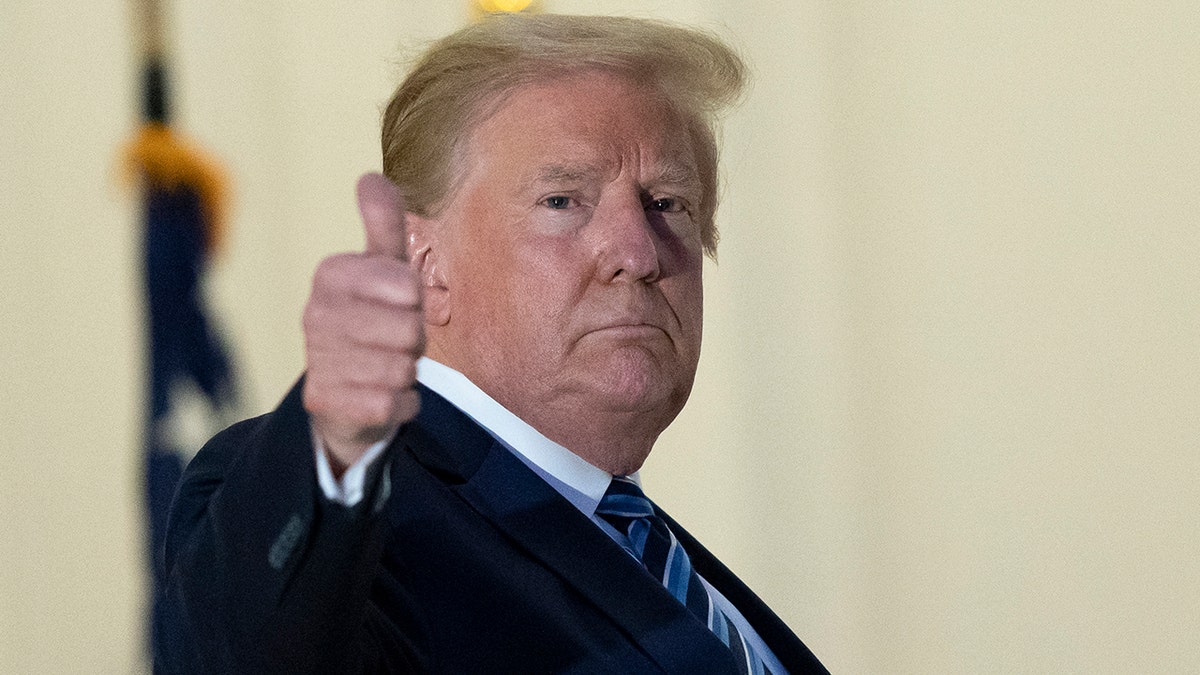John Yoo: The court 'ripped the heart out' of Jack Smith's charges against Trump
Former Deputy Assistant Attorney General John Yoo joins 'Life, Liberty & Levin' to discuss Jack Smith's attempts to legally pursue former President Donald Trump.
Monday’s Trump v. United States opinion made clear that a president or former president "may not be prosecuted for exercising his core constitutional powers, and he is entitled, at a minimum, to a presumptive immunity from prosecution for all his official acts."
Chief Justice John Robert’s majority opinion also said that "the President enjoys no immunity for unofficial acts, and not everything the President does is official."
The opinion did not, however, provide precise definitions for what exactly is considered an official or unofficial act, and left that question of fact-finding to the lower courts.

As Chief Justice Roberts wrote, "immunity applies equally to all occupants of the Oval Office." (Alex Brandon/AP Images)
The Supreme Court, however, clearly stated that courts may not inquire into a president’s motives when trying to distinguish official from unofficial acts nor "deem an action unofficial merely because it allegedly violates a generally applicable law."
The court also stated that prosecutors may not use official acts as evidence to support claims that a president’s unofficial acts are criminal.
Special Counsel Jack Smith and Attorney General Merrick Garland must now seriously reconsider how they wish to proceed with the DOJ’s prosecution in the District of Columbia against former President Trump, given the contours of today’s opinion and Friday’s Fischer opinion, which effectively canceled the core of the DOJ’s two Sarbanes-Oxley obstruction charges against Trump.
Because the court very clearly stated that Trump is "absolutely immune from prosecution" regarding his post-2020 election discussions with Justice Department officials, and "presumptively immune" for allegedly pressuring Vice President Pence, the two remaining fraud and voting rights charges are, at best, on extremely thin ground, especially because the court barred using or analyzing Trump’s motives and because there are numerous legal flaws in the DOJ’s theory of prosecution.
It is conceivable that the DOJ could argue that "Trump’s interactions with state officials, private parties, and the general public" regarding the 2020 election results were unofficial acts subject to continued prosecution, but it would require extensive fact-finding and briefing at the district court, such that an actual trial likely would be at least two years away.
Furthermore, there remain constitutional law issues yet to be litigated, such as whether the special counsel and his office were properly created and structured, which also require significant briefing and time.
While the Smith/Garland DOJ broke all "norms" in criminally prosecuting a former president who is the sitting president’s chief political rival, the court clearly stated that this case was one of "lasting significance" and that it "cannot afford to fixate exclusively, or even primarily, on present exigencies," meaning that it was not solely focused on the implications for Trump and instead looked to the long term and all future presidents, or what Justice Neil Gorsuch called during oral argument a "rule for the ages."
As Chief Justice Roberts wrote, "immunity applies equally to all occupants of the Oval Office." No matter how much one may dislike Trump, there is no "Get Trump" exception to the law or the Constitution, and rule of law means that prosecutors may not first target the man and then conjure up the crime.
AOC THREATENS SUPREME COURT ARTICLES OF IMPEACHMENT OVER IMMUNITY RULING
Thus, Monday’s opinion also benefits President Biden – and all future presidents – because it preemptively shuts down any potential criminal prosecution of him for his official acts after he leaves office (regardless of whether it’s January 2025 or January 2029).
For example, a future hyperaggressive prosecutor may not criminally prosecute Biden for his disastrous withdrawal from Afghanistan, for making available billions of dollars to the hostile Iranian regime, nor for sending tens of billions of dollars to Ukraine while he and his son were under investigation for taking money from Ukrainian-related entities.
Nor may he be charged with allegedly perpetrating a fraud upon the United States or the American people with respect to his physical and mental health, nor for purportedly selectively prosecuting Trump and Trump’s political allies, such as Peter Navarro and Steve Bannon.
CLICK HERE FOR MORE FOX NEWS OPINION
Presidential immunity from prosecution or a rebuttable presumption of immunity does not mean that the Congress or the American people cannot hold presidents accountable.
For example, the Constitution clearly lays out the House impeachment and Senate trial removal procedures, and one hopes that legislators are wise enough to use them sparingly and only after following proper procedures and developing an airtight case.
Of course, the American people have the ultimate accountability tool: voting a president out of office.
CLICK HERE TO GET THE FOX NEWS APP
The Biden administration was wrong to break norms and prosecute a former president, if only because doing so impinged on the "exclusive and preclusive" powers of future presidents. It also began what could have been a vicious cycle of tit-for-tat prosecutions from administration to administration, which would have been disastrous for the rule of law.
Thankfully, Monday’s well-reasoned Supreme Court decision prevented that cycle, and properly considered all the different competing factors, including a president’s constitutional responsibilities and ability to do his job.
















































